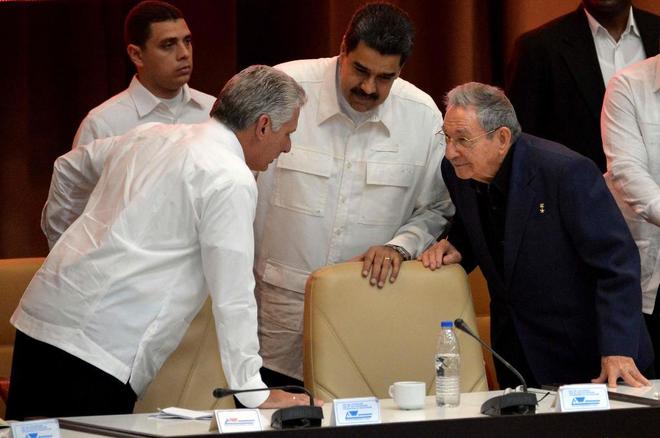The strategy that el chavismo has followed in the last two years of attempting to dominate public debates on Twitter is no longer limited to internal matters in Venezuela, as now it is also making an effort to defend the "Castroist" regime, according to a study by the Probox digital observatory.
During the month of July 2021 Probox registered 182 political and social hashtags on Twitter as a trend in Venezuela. In total, they categorized 7.7 million tweets. After the eruption of citizen protests on 11-J in Cuba, el chavismo turned to said social network as part of an official strategy adopted by Nicolás Maduro's regime.
According to the Probox report, defense of the Cuban regime, within the framework of the wave of protests in Cuba, was the main topic of conversation promoted by Venezuela's Ministry of the Popular Power of Communication and Information (MIPPCI). This agency, which functions as a propaganda apparatus, positioned 11 hashtags related to Cuba, together adding up to 1.4 million tweets.
"It's important to understand the role and intention behind this digital support that the Díaz-Canel regime received and will probably continue to receive," Venezuelan activist Marivi Marín Vásquez, Executive Director of Probox, explained to DIARIO DE CUBA.
Among the 11 hashtags promoted from Caracas in support of Castroism in the wake of the crisis sparked by the street protests in Cuba, Marín Vásquez cites as an example the following one on Twitter: #VenezuelaYCubaUnidas (VenezuelaAndCubaUnited), with 120,000 tweets and a 74.8% inorganicity rating, which denotes content possibly generated by automated accounts or that exhibit inauthentic behavior.
Of the 11 hashtags of this type promoted by el chavismo, ten of them managed to become Trending Topics (TT). The most worrisome thing for the director of Probox is that these "were not only TT in Venezuela, but also reached top slots in trends in Cuba."
In addition to the "fraternal support" that the Maduro government strives to demonstrate, in the digital activist's opinion there is actually a "strategy, and very possibly, communication, between these two regimes to promote a different picture (once distorting the reality) on social networks like Twitter about what is happening in Cuba and Venezuela."
All the messages emitted by the Venezuelan MIPPCI in July, along with other issues in addition to support for Castroism, represented 70% of the month's socio-political conversation in Venezuela.
The trend that Probox has been observing, coinciding with the observations of other entities monitoring Venezuelan civil society, is that, in relation to social media, el chavismo has adopted a different strategy: to take over that space for discussion, as on traditional media it has already established a model of censorship and content control.
Then there are the new regulations for the digital sphere in Cuba, and the threats of regulations governing social networks in Venezuela. "All this entails a serious threat to a dimension that has become the only forum for free expression and complaints of human rights violations for millions of people" in both countries, according to Marín Vásquez.
By monitoring the digital conversation on Twitter in Cuba and Nicaragua, in addition to Venezuela, the Probox director believes that an "almost impeccable synchronization is detected in the common strategies of censorship, disinformation and propaganda adopted by these three regimes."
The actions of el chavismo in this realm of social media do not seem to be dedicated exclusively to depicting a reality different from what is really being experienced in Venezuela or Cuba. Rather, they also aim to influence the internal politics of other countries.
Probox, together with the organization Digital Users, in Ecuador, detected a campaign promoted by Venezuela's ruling party to create propaganda in favor of Rafael Correa-backed candidate Andrés Arauz and against the current president Guillermo Lasso in the framework of the presidential elections in the South American country.
